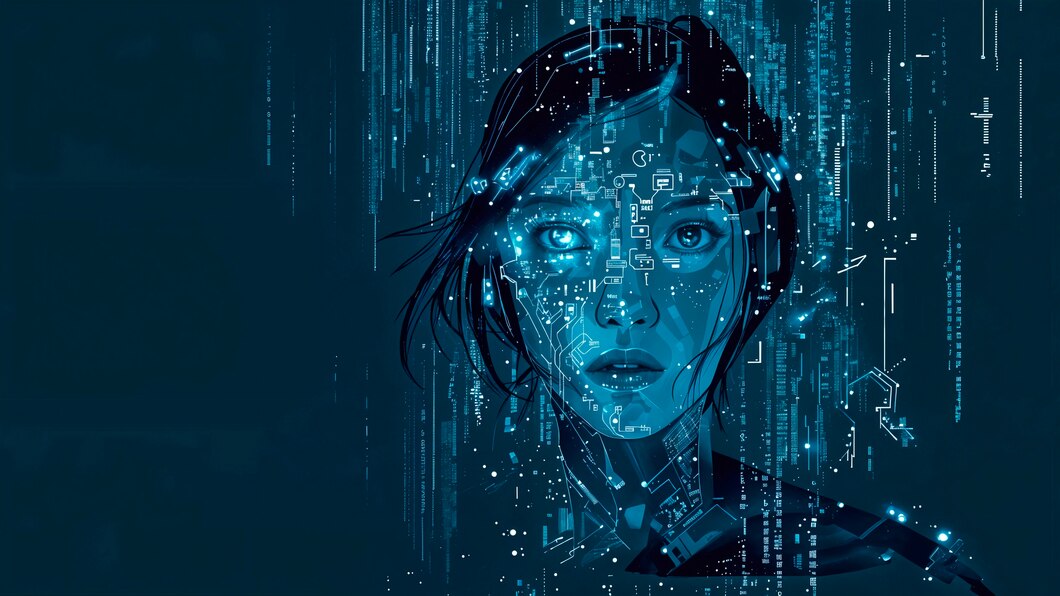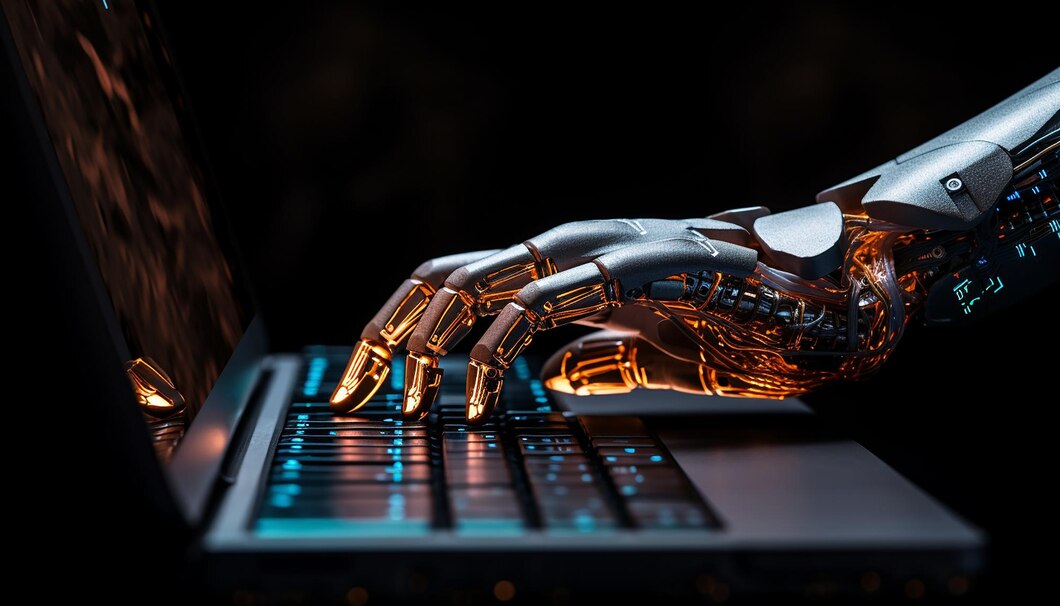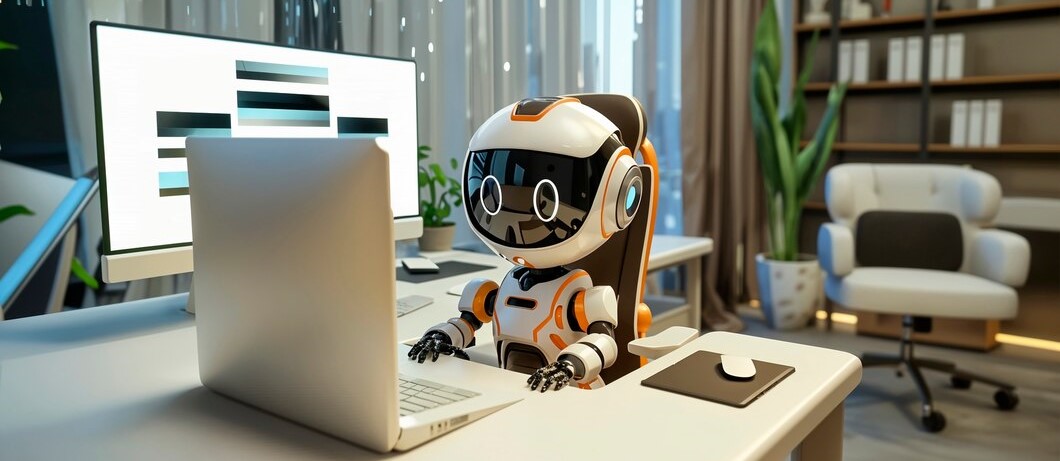The Rise of AI in Everyday Life How Automation is Shaping Our Future
Artificial intelligence (AI) has silently changed the way we live, work, and relate to the world around us. It is no longer a future idea confined to tech labs or science fiction films; rather, it has become a part of everyday life. AI supports many of the technology we use on a daily basis, whether we recognize it or not. These technologies make our lives easier, more efficient, and even more customized. The development of artificial intelligence (AI) is significantly and broadly changing many aspects of our lives, from smart homes and virtual assistants to healthcare and entertainment.


What is Artificial Intelligence?
The creation of computer systems that are capable of doing tasks that normally require human intelligence, such as speech recognition, problem solving, learning, and decision making, is referred to as artificial intelligence. AI systems are able to learn and develop over time, becoming more intelligent and efficient at the tasks they are assigned by examining vast volumes of data. One important area of AI is machine learning, which enables computers to learn from data and experiences, increasing accuracy without the need for explicit programming.
AI in Everyday Life: How It's Transforming Our World
- Smart Assistants and Virtual Companions: The most obvious way artificial intelligence (AI) has permeated daily life is through smart assistants, such as Google Assistant, Amazon's Alexa, and Apple's Siri. Voice-activated AI systems assist users with a variety of tasks, including answering searches, monitoring the weather, scheduling reminders, and even operating smart home appliances. Over time, these assistants create a tailored experience by adjusting to preferences and learning from user behavior. AI assistants are growing increasingly perceptive as they develop; they can now comprehend spoken language and even predict users' requirements before they are asked.
- AI in Entertainment and Media: Artificial Intelligence is a major factor in improving our entertainment. AI algorithms are used by platforms such as Netflix, YouTube, and Spotify to make personalized content recommendations based on user behavior, preferences, and viewing or listening patterns. These suggestions speed up and improve the experience of discovering new TV series, songs, or films. Video game characters and landscapes can now be smarter and more responsive thanks to AI-powered interactive experiences.
- Smart Homes and IoT (Internet of Things) Devices: The smart home revolution is powered by AI, which transforms regular homes into intelligent, networked spaces. Wifi and other smart thermostats adapt to your temperature preferences and change settings to maximize energy savings. AI-enabled security systems increase home safety through motion detection and facial recognition. A future home environment can be created using voice-activated smart speakers, which provide smooth control of lights, appliances, and entertainment systems. Our houses are now more convenient, secure, and energy-efficient thanks to the Internet of Things' (IoT) integration with artificial intelligence.
- Healthcare and Wellness: AI is transforming healthcare by making it possible to provide accurate diagnosis, individualized treatment schedules, and even remote patient care. AI systems can evaluate medical data from MRIs, X-rays, and genetic tests to assist physicians in diagnosing patients more quickly and accurately. Artificial Intelligence (AI) is used by devices like Fitbit and Apple Watch to track heart rate, sleep habits, and physical activity. The result is real-time health insights that support users in maintaining a healthy lifestyle. AI is going to become much more important in the near future for personalized treatment, early condition identification, and disease prediction.
- AI in Transportation: Innovation in the transportation industry is being driven by AI, especially in the area of autonomous vehicle development. AI is being used by businesses like Tesla and Waymo to develop self-driving cars that can make judgments in real time based on variables like traffic patterns, road conditions, and possible risks. Even while fully driverless vehicles are still a ways off, artificial intelligence is already contributing to safer driving with functions like automated emergency braking, adaptive cruise control, and lane-keeping assistance. Additionally, ride-hailing applications like Uber and Lyft employ AI to forecast demand, optimize routes, and effectively pair drivers and passengers.
- Customer Service and AI Chatbots: AI-powered chatbots are increasingly widely used by businesses to respond to customer care questions and offer quicker, more effective support. By utilizing natural language processing (NLP), these chatbots are able to understand client inquiries and offer pertinent answers, frequently addressing problems without the assistance of a human. Artificial intelligence chatbots are becoming more and more capable of managing intricate client interactions, freeing up human workers to work on more difficult duties.
The Benefits of AI in Everyday Life
The rise of AI in everyday life offers several key benefits:
- Increased Efficiency: Repetitive duties can be automated by AI, freeing humans up to focus on more significant or imaginative activities. Artificial Intelligence is increasing efficiency in a variety of industries, from email response automation to office workflow optimization.
- Personalization: AI enables for highly personalized experiences, whether it’s proposing products tailored to individual preferences or altering the settings in a smart home to reflect a user’s habits.
- Cost Savings: By increasing productivity, lowering errors, and providing more specialized services, artificial intelligence (AI) can save operating costs in sectors like healthcare and retail.
- Improved Decision Making: Artificial Intelligence (AI) facilitates faster, more informed decision-making for both individuals and enterprises. It can be used to diagnose medical ailments and predict stock market movements.
The Challenges and Ethical Considerations
While the rise of AI brings many benefits, it also presents several challenges and ethical concerns:
- Job Displacement and Automation: The possibility of AI displacing workers is one of the biggest worries. Many worry that employment may be lost as AI continues to automate functions that have historically been performed by people, such as data entry, manufacturing, and even some customer support positions. Others counter that although certain professions would go, new ones in AI development, maintenance, and supervision might eventually lead to the creation of more highly skilled positions.
- Privacy and Data Security: Since AI systems frequently need vast volumes of data to operate efficiently, privacy and data security are issues that need to be addressed. There is a higher chance of misuse or hacking when more personal data is gathered and examined. Building trust in AI technology requires making sure that these systems adhere to stringent data privacy laws and that user information is handled appropriately.
- Bias and Fairness: Because AI systems can only be as good as the data they are trained on, biased data may inadvertently cause the AI to reinforce injustice in fields like lending, hiring, and law enforcement. Maintaining representative and diverse data together with openness in the AI decision-making process are essential to addressing bias in AI systems.
The Future of AI in Everyday Life
AI's significance in daily life will only grow as technology advances. More developments in AI-powered healthcare, including more individualized treatment options and predictive diagnoses, are anticipated in the future. The way we travel may change if autonomous cars become a regular presence on our roads. By providing individualized learning experiences catered to each student's requirements and learning preferences, AI has the potential to completely transform the educational system.
But the development of AI in the future will also call for careful consideration of ethics, laws, and responsible development. Unlocking AI technologies' full potential and making sure that everyone benefits from them will depend on ensuring that they are inclusive, safe, and fair.
Conclusion
The way we work, live, interact with the world is changing as artificial intelligence becomes more common in daily life. AI is opening the way for a more connected, customized, and effective future in everything from smart homes and healthcare advancements to AI-powered entertainment and transportation. Although issues like bias, job displacement, and privacy concerns need to be addressed, AI has tremendous potential to improve our lives. AI's influence on daily life will only increase as technology develops, pointing to a time when intelligent systems will be effortlessly incorporated into every facet of our existence.
Thank You For Subscribing
A confirmation email has been sent to


